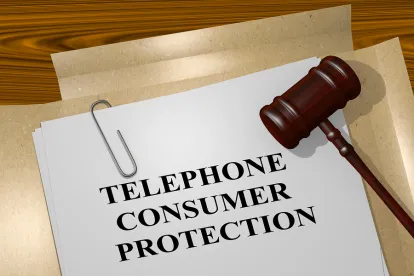The full House Committee on Energy and Commerce will hold a markup tomorrow morning of a list of some 26 bills, with the first on the list being the Stopping Bad Robocalls Act, H.R. 3375. As you may recall, the bill was approved by a unanimous voice vote of the Subcommittee on Communications and Technology on June 25. The full Committee markup session will start at 9:30 a.m. Eastern Time in the John D. Dingell Room, 2123 of the Rayburn House Office Building.
Per Chairman Frank Pallone’s Committee memorandum, the twelve substantive sections of the bill, including the four new sections approved during the June 25 Subcommittee markup (Sections 9-11 and 13), would provide for the following:
Section 2 of the bill would require the Federal Communications Commission (FCC) to complete a rulemaking within six months of enactment and, as appropriate thereafter, to ensure the effectiveness of consumer protection and privacy provisions that are contained in Section 227 of the Communications Act. Specifically, the FCC would be required to prescribe rules and revise its existing rules under the Telephone Consumer Protection Act (TCPA) to protect consumers and their privacy, ensure that robocalls are only made with consent, ensure that consumers can withdraw consent, prevent circumvention or evasion of the law, ensure robocallers are keeping records to prove they have the consent of the people they are calling, and help ensure robocallers are following the law.
Section 3 would require the FCC to implement consumer protections on the FCC’s exempted classes of robocalls. These consumer protections must specifically include limits on the classes of parties that may make such calls, the classes of parties that may be called, and the number of calls allowed under the exemption.
Section 4 would require the FCC to submit a report to Congress regarding the agency’s status in implementing actions discussed within the FCC’s Second Report and Order in the matter of Advanced Methods to Target and Eliminate Unlawful Robocalls, which includes the implementation of a reassigned number database. This section also clarifies that when a consumer gets a new phone number, robocallers cannot keep calling to look for the person who had previously been assigned that phone number.
Section 5 would extend the statute of limitations by up to four years, in some cases, to give the FCC and law enforcement agencies enough time to prosecute illegal robocallers.
Section 6 would require the FCC to submit an annual report to Congress on illegal robocallers detailing its enforcement activities during the preceding calendar year. The report also requires the FCC to provide Congress with proposals for decreasing the number of robocalls through additional legislation.
Section 7 would require all carriers, over time, to implement a new technology to make sure that caller-ID information is appropriately authenticated with no additional line item charge for consumers on their bill. Specifically, this section requires the FCC to recognize and address the burdens and barriers to adopting this technology across the country. Implementation of these measures will help to ensure that rural parts of the country with older technology are not left behind. To the extent some carriers need additional time to implement this technology, the FCC will need to find alternative methodologies for authenticating calls.
Section 8 would ensure that robocall blocking services offered on a default basis are provided with no additional line item charge to consumers on their bills and that consumers and callers have effective transparency and redress options with regard to robocall blocking services.
New section 9, added by an amendment offered by Representatives Donald McEachin (D-VA) and Pete Olson (R-TX), would require the FCC to submit evidence of certain criminal robocall violations to the Department of Justice for criminal prosecution and the FCC to publish a report annually disclosing how frequently the FCC submitted such evidence.
New section 10, added by an amendment offered by Representatives Yvette Clarke (D-NY) and Gus Bilirakis (R-FL), would require the FCC to initiate a proceeding to protect consumers from one-ring scams, including by working with foreign governments to address one-ring scams and by incentivizing carriers to stop calls made to perpetrate one-ring scams, among other things.
New section 11, added by an amendment offered by Representative Darren Soto (D-FL) on behalf of Representative Charlie Crist (D-FL), would require the Attorney General, in consultation with the FCC, to convene an interagency task force to study the enforcement of the TCPA. Among other things, the task force will: (1) determine how federal law and budgetary constraints inhibit enforcement of the TCPA; (2) identify existing and additional policies and programs to increase coordination between federal departments, agencies and the states for enforcing and preventing violations of the TCPA; and (3) identify existing and potential international policies and programs to improve coordination between countries in enforcing the TCPA and similar laws.
New section 13 was added by an amendment offered by Representatives George Butterfield (D-NC), Bill Johnson (R-OH), Darren Soto, and Greg Gianforte (R-MT) and requires the FCC to register a consortium of companies engaged in private-led efforts to traceback the origin of suspected unlawful robocalls. It also creates a certification process for when carriers have or have not participated in a private-led effort to traceback the origin of a suspected unlawful robocall, requires the FCC to publish a report on participation by carriers in private-led efforts to traceback the origin of suspected unlawful robocalls, and allows the FCC to permit some carriers to not accept calls from carriers facilitating suspected unlawful robocalls, among other things.
The markup session should be viewable here.




 />i
/>i

